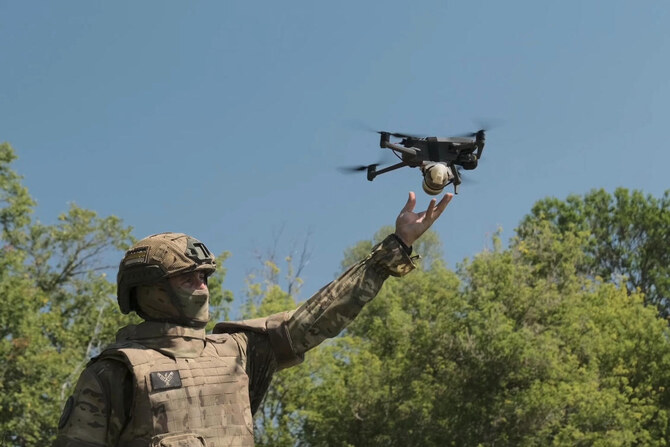VREDEPEEL, Netherlands: NATO concluded a major anti-drone exercise this week, with Ukraine taking part for the first time as the Western alliance seeks to learn urgently from the rapid development and widespread use of unmanned systems in the war there.
The drills at a Dutch military base, involving more than 20 countries and some 50 companies, tested cutting-edge systems to detect and counter drones and assessed how they work together.
The 11-day exercise ended with a demonstration of jamming and hacking drones in a week when their critical role in the Ukraine war was demonstrated once again.
On Wednesday, a large Ukrainian drone attack triggered an earthquake-sized blast at a major Russian arsenal. The following day, Russian President Vladimir Putin said Moscow was ramping up drone production tenfold to nearly 1.4 million this year.
The proliferation of drones in the war – to destroy targets and survey the battlefield – has prompted NATO to increase its focus on the threat they could pose to the alliance.
“NATO takes this threat very, very seriously,” said Matt Roper, chief of the Joint Intelligence, Surveillance and Reconnaissance Center at the alliance’s technology agency.
“This is not a domain we can afford to sit back and be passive on,” he said at the exercise site, Lt. Gen. Best Barracks in the east of The Netherlands.
Experts have warned NATO that it needs to catch up quickly on drone warfare.
“NATO has too few drones for a high-intensity fight against a peer adversary,” a report from the Center for European Policy Analysis think tank declared last September.
“It would be severely challenged to effectively integrate those it has in a contested environment.”
THREAT EVOLUTION
The drills that wrapped up on Thursday — complete with ice cream for onlookers provided by a radar company — were the fourth annual iteration of the exercise.
Claudio Palestini, the co-chair of a NATO working group on unmanned systems, said the exercise had adapted to trends such as the transformation of FPV (first-person view) drones — originally designed for civilian racers – into deadly weapons.
“Every year, we see an evolution of the threat with the introduction of new technology,” he said. “But also we see a lot of capabilities (to counter drones) that are becoming more mature.”
In a demonstration on Thursday, two small FPV drones whizzed and whined at high speed through the blue sky to dart around a military all-terrain vehicle before their signal was jammed.
Such electronic warfare is widespread in Ukraine. But it is less effective against long-range reconnaissance drones, a technology developer at Ukraine’s defense ministry said.
The official, giving only his first name of Yaroslav for security reasons, said his team had developed kamikaze drones to destroy such craft – a much cheaper option than firing missiles, which Ukraine had previously done.
“You need to run fast,” he said of the race to counter the impact of drones. “Technology which you develop is there for three months, maybe six months. After, it’s obsolete.”
















